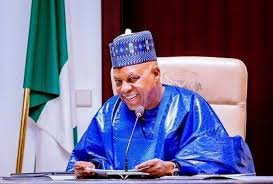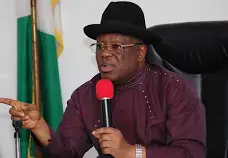Vice President Kashim Shettima has urged the Islamic Development Bank (IsDB) to scale up its support for Nigeria’s educational and healthcare sectors as part of a broader collaboration to drive human capital development and economic reform under the Tinubu administration.
Speaking on Tuesday during a courtesy visit by a delegation from the IsDB, led by the Head of its Regional Hub, Mr. Hammad Hundal, at the Presidential Villa, Abuja, Shettima called for a realignment of the bank’s Country Engagement Framework (CEF) with Nigeria’s pressing development needs—particularly in health and education.
He highlighted the government’s determination to address long-standing deficits in key sectors, describing education and healthcare as critical pillars for building a resilient and inclusive economy.
“This administration is poised to address the challenges we face in human capital development, financial inclusion, infrastructure, and nutrition. In fact, we have no option but to act in the right direction,” Shettima said.
The Vice President also applauded the Islamic Development Bank’s existing interventions in Nigeria’s social sector, noting its support for initiatives such as the Special Agro-Processing Zones (SAPZ) and the Innovation Development and Effectiveness in the Acquisition of Skills (i-DICE) programme, which target youth empowerment through education and innovation.
He urged the bank to further expand its role in Nigeria’s health and education systems by investing in sustainable, community-focused programmes capable of delivering measurable impacts.
In response, Mr. Hundal reaffirmed the Islamic Development Bank’s commitment to aligning its operations with Nigeria’s development priorities. He said the bank is currently reviewing its Country Engagement Framework to incorporate the objectives of the Tinubu administration’s Renewed Hope Agenda.
“We are looking at a holistic review of our CEF in Nigeria to ensure that we scale up our intervention in economic infrastructure, private sector support, energy security, and the i-DICE programme,” Hundal said.
Also speaking, Dr. Obioma Asuzu, the bank’s Country Economist, presented the updated framework which aims to strengthen partnerships, boost economic recovery, tackle poverty, and promote inclusive growth.
“Our CEF is anchored on Nigeria’s national priorities and emphasizes strategic investments in areas such as health, education, and resilience-building,” Asuzu said.
The visit signals growing collaboration between Nigeria and the Islamic Development Bank, with expectations that renewed investments in the education and health sectors will help lay the foundation for long-term socioeconomic transformation.



